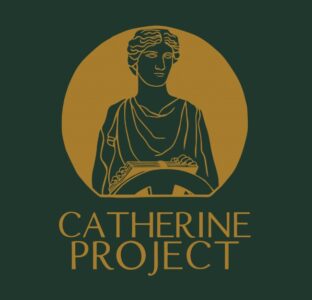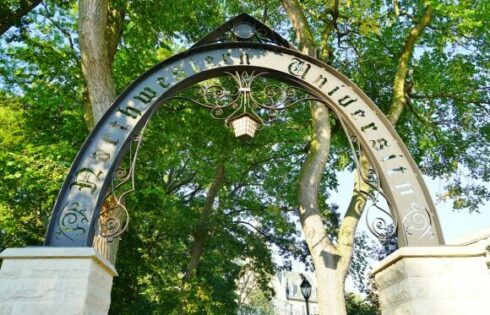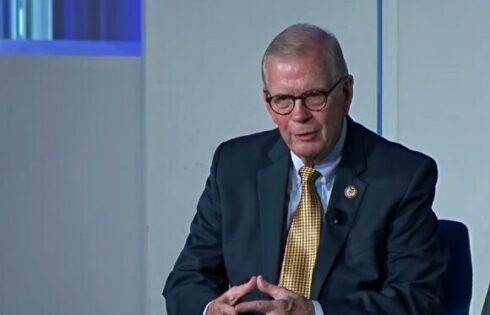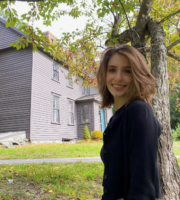
Reading groups discuss Greek philosophy, modern poets in free online courses
The Catherine Project, a free online higher learning initiative, continues to grow as it feeds “an immense hunger” for classical education in modern society.
Celebrating its fourth anniversary this month, the project offers seminars and reading groups that discuss topics ranging from Greek philosophy to the poetry of 20th century American author Sylvia Plath.
Leaders say the project provides the kind of learning community that many people are hungering for, one where they can learn alongside like-minded peers.
The initiative has doubled in size since 2022, Executive Director Jordan Poyner told The College Fix in a recent email.
Poyner attributed the success to humans’ innate desire for “intellectual community” where they are able “to think, speak, and learn together.”
Since 2020, 2,700 people have found community in the Catherine Project, which Poyner described as having “no ulterior motives, political or religious agendas, bureaucratic red tape, etc.”
Because it has “none of the baggage that higher education often has to carry,” the initiative is free to focus on “cultivating the love of learning through reading and thinking about great books together,” Poyner said.
When the project began, founder Zena Hitz said she “envisioned education without strings attached, no grades, no credits, no tuition, run on the manifest love of learning alone.”
Hitz named the project after the martyred Christian orator St. Catherine of Alexandria— who aimed to bring the great books to readers who desired knowledge for knowledge’s sake.
Poyner told The Fix that “almost half of our readers have taken 2 or more courses with us.”
As demand has increased, so too has its workforce. Poyner said the volunteer network has grown to 179, up from 90 in 2022.
 Additionally, “we hired an associate director last fall, increasing our team of full-time staff to two!” he said.
Additionally, “we hired an associate director last fall, increasing our team of full-time staff to two!” he said.
The project also launched a new Life of the Mind Seminar, “which is meant to throw open the door to conversation-based study of great books,” according to Poyner.
The seminar guides participants through “ancient Greek philosophy and poetry, writing about the heavens by Ptolemy and Galileo, and fiction by Jonathan Swift and Flannery O’Connor” over the course of 12 meetings, he said.
In the future, Poyner said the goal is to expand their Core Program to include courses on Homer, Plato, and Aristotle.
They also want to “organize regular in-person events” and eventually establish a campus with a library – “a dedicated space for serious intellectual life outside mainstream academia,” Poyner said.
The project relies primarily on the support of individual donors.
Students’ perspectives
In a recent email, participant Zina Gomez-Liss told The Fix about the Catherine Project has enriched her life.
Since the fall of 2022, she has participated in tutorials and reading groups covering works like Homer’s “Iliad” and “Odyssey,” St. Augustine’s “Confessions,” Aristotle’s “De Anima,” Virgil’s “Aeneid,” and Geoffrey Hill’s “Broken Hierarchies.”
She also participated in a beginner Latin course, which is offered along with ancient Greek.
As a master’s degree candidate in the University of St. Thomas’s poetry program, Gomez-Liss said the project has helped her grow as a scholar.
Gomez-Liss told The Fix one of the things she values most is the time group leaders spend guiding them through the great books.
“Knowing the great books is the foundation for reading so much of literature that is created afterward,” she said. “I mean, how do you understand James Joyce’s Ulysseys without knowing Homer’s Odyssey?”
Additionally, she said she appreciates the insights of her classmates’—many of whom are older and “able to bring more life experiences into interpreting great works.”
Poyner said the project encourages collaboration, meaning “the attempt to diligently read and think through a text in partnership with others.”
Contemplating great literature “with a group of enthusiastic peers is one of the most beautiful possibilities for a human being,” he said.
Along with offering “fresh perspectives and insights” it also acts as a reminder “of the vitality of these texts,” which “aren’t curious artifacts for us, but living things that have to be sounded out and wrestled with,” Poyner said.
Gomez-Liss also attested to this, telling The Fix that “reading in fellowship … is what human flourishing looks like.”
During a Sept. 11 seminar, “Life of the Mind,” attended by The Fix, readers analyzed Greek philosopher Parmenides’ “Fragments.” It was co-led by executive director Poyner and ancient Greek scholar Thomas Cleveland.
Members were encouraged to analyze the ancient text without the help of external source material.
Observing Poyner’s thoughts on the importance of silence and its role in generating thought, readers carefully considered questions and theories posed by the instructors before contributing their own insights to the discussion.
This was no easy feat given the poem’s complexity, contradictions, and lofty philosophizations that spanned from the nature of reality and being to the narrator’s reason for pursuing enlightenment.
Yet, these existential and, at times, seemingly incomprehensible subjects prompted thoughtful discussions and well-rounded ideas from the group, with each exhibiting respect for others’ opinions.
As Poyner observed in his email to The Fix, “there’s an immense hunger for serious intellectual community.”
MORE: This course reads Nazi literature to learn about evil. Here’s why.
IMAGE: Anastasios71/Shutterstock, Catherine Project
Like The College Fix on Facebook / Follow us on Twitter






Please join the conversation about our stories on Facebook, Twitter, Instagram, Reddit, MeWe, Rumble, Gab, Minds and Gettr.